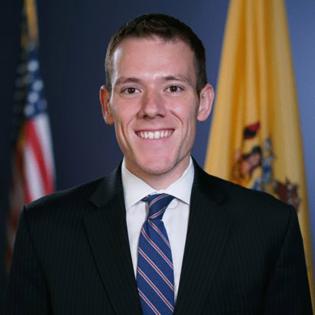COUNTERPOINT: The battlefield requires individuals with STEM backgrounds
Published in Op Eds
Only 1 percent of Americans serve in our nation’s military. It should be unsurprising that many don’t understand military service, the types of jobs it offers, the way of life, and the long-term opportunities it provides.
One common misconception is that there is no future in the military for individuals with science- and technology-related backgrounds and interests. In reality, today’s battlefield looks far different from the one many of our parents and grandparents fought. Modern warfare spans from cyberspace to outer space. As a result, our military’s strength depends heavily on those with diverse backgrounds.
Of course, combat roles such as infantry and artillery still exist, are critical to our military, and are a preferred path for many. You can also join the military and become an unmanned aerial vehicle operator, a scientist, a cybersecurity specialist, or an engineer. In the Army, there are more than 150 career options. This is for a branch that many assume only has select combat-focused opportunities. In my case, I now serve in the U.S. Army Reserve and teach individuals from all branches of the military about cyber law and policy.
As I convey to students and fellow practitioners, modern conflict continues to move into cyberspace and leverage technology. In fact, we have already seen adversaries pursue nefarious goals through cyber means and leverage artificial intelligence to make their traditional tactics more effective.
The White House recognizes these risks and recently issued a new AI policy that aims to use advanced technologies for national security and ensure the United States remains the international leader in AI development. This new memorandum, among other relatively recent measures, requires national security experts to use these capabilities offensively and defensively against adversaries and malicious actors.
Understanding these emerging threats, individuals in science and technology must see the military as a viable career option. This isn’t to say that service in science and technology career fields is more important than direct combat-related roles, but rather, it is either a complement to traditional military units or a standalone military capability against an adversary.
Our military leaders understand this and have worked to provide unique opportunities for those with technical and science interests to attract them to serve, although more work can always be done. Four stand out.
First, individuals with STEM education and experience can directly enter relevant jobs in the military with streamlined training requirements. Cyber careers are an excellent example of this, with a cyber direct commissioning program for individuals with existing experience to directly enter military service at advanced ranks that range from lieutenant to colonel.
Second, for those interested but might have a job they don’t want to leave, there are opportunities for part-time service like the Reserve and National Guard. These opportunities have evolved to balance a civilian job better with a part-time military role. There is a growing cohort of those who work for technology companies full time bringing their expertise to the military on a part-time basis.
Third, individuals can strengthen their qualifications while serving, such as earning industry credentials at no cost. For cyber specifically, the military can present opportunities to hone skills against real threats even in fairly junior roles and be exposed to cyber capabilities that your peers might never see outside the military.
Fourth, there are opportunities for broader exposure to the military outside the leading role for those interested.
Military service is not for everyone. Not every person will qualify to serve, and not everyone is a fit for various reasons. However, serving opportunities should not be automatically ruled out because they don’t match career goals. Our military needs individuals with diverse backgrounds and interests, not to meet a recruiting goal but for our national security.
_____
ABOUT THE WRITER
Brandon Pugh is the director of the cybersecurity and emerging threats team at the R Street Institute. He continues to serve in the U.S. Army Reserve. He wrote this for InsideSources.com.
_____
©2024 Tribune Content Agency, LLC




























































Comments